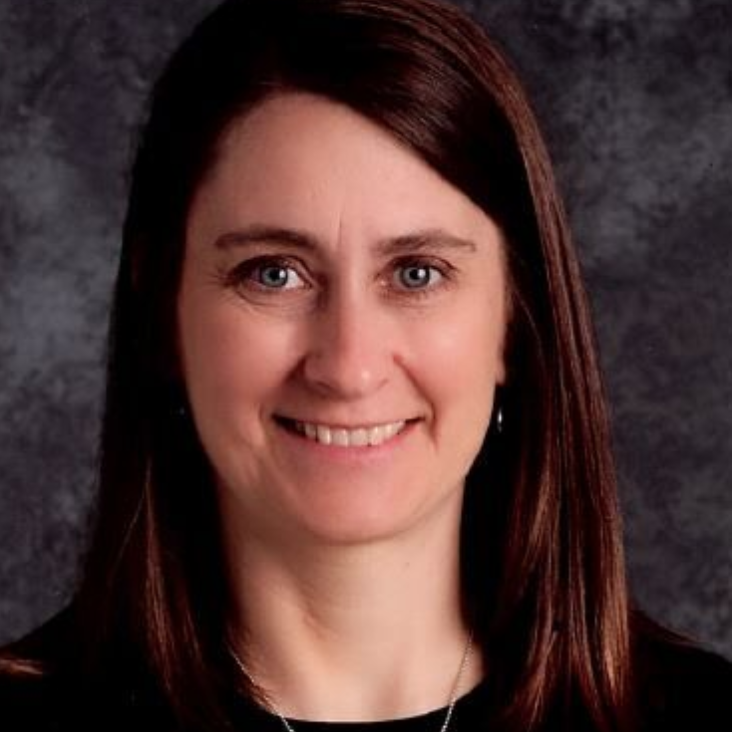We All Just Want Kids to be Thinkers
Kristi Deaver Uselding first encountered POGIL more than a decade ago, right as she was trying to break the lab and lecture cycle in her Iowa high school chemistry classroom. Invigorated by her first workshop, Uselding volunteered to provide feedback for the new activities rolling out as part of POGIL's High School POGIL Initiative, or HSPI.
Soon, she experimented with writing her own activities. "I started to write my own when there seemed like there was a gap, or what was available wasn't quite what my kids needed at that time," she said. "Sometimes it was the level, or the approach to the concept," Uselding continued. "Like, I don't really need them to know all of that right now; I just need this little piece."
As a practitioner, and, later, a facilitator of POGIL's three-day workshop and writing retreat, Uselding discovered how flexible POGIL could be. "There is a formula to it, but you do make it your own," she said. "Especially in the facilitation piece. That's where I learn from people. People feel it's prescriptive, but it's really not."
Because facilitation is such an important aspect of running POGIL in the classroom, Uselding found that the most successful teachers play to their strengths. "You really just have to make it your own," she explained. "What works for you, what fits your personality."
This even extends to how teachers use and distribute roles in their classroom, a process Uselding struggled with at first. She gained the confidence to try out a new set of roles with her students in a writing workshop, and she encourages the teachers in her own workshops to stick it out, too.
"It was a night and day difference within the classroom," she said of trying a new role structure with her students. "I still have a lot of work to do, but the students are able to manage themselves better when they know what role they need to play."
Facilitating writing workshops has also helped Uselding connect with other educators and give them the fresh perspective they need on their own classroom materials to be more successful. It's one of the biggest reasons she continues to stay involved in POGIL.
"I'm a good sounding board for people," Uselding said. "What the writing workshop allows participants to do is just get a fresh perspective on their work."
As a high school teacher, Uselding also works hard to balance content knowledge with process skills. Working collaboratively with other teachers in The POGIL Project helps Uselding think through how students develop these process skills, too.
"How can I better teach and assess the process skills that students are using? We write activities intentionally, to have kids use process skills like collaboration, but how do you really assess that? And when they're not getting it, how do you teach that skill?" Uselding mused.
It's telling that, even in an interview, Uselding is still thinking about the best way to teach. POGIL tends to have that effect on its practitioners. "It's not just that you go to a three-day workshop, and you're done," said Uselding. "You meet new people that are trying it in a different way. I think it's a good community in that sense. We share from each other and give feedback."
"Every time I meet with POGIL teachers, even the facilitators, I learn something," Uselding added. "I'm not perfect at this. All I can do is share what works in my classroom and what's not working in my classroom. I leave with a deeper understanding of the activity every time."
Ultimately, Uselding continues teaching with POGIL because she wants her students to be independent thinkers who can navigate college on their own. Her conversations with post-secondary teachers at writing workshops make her confident that POGIL has a place in high school chemistry classrooms because it prepares students for their college experience.
Despite all the differences in their careers, she says, secondary and post-secondary POGIL practitioners have a lot in common and can learn from one another. "Our goal as educators is really the same," Uselding said. "We all just want kids to be thinkers. We want our students to grow up and make meaning for themselves. POGIL is one way that allows us to help kids with that process, and to make those connections."

We All Just Want Kids to be Thinkers
"We all just want kids to be thinkers. We want our students to grow up and make meaning for themselves. POGIL is one way that allows us to help kids with that process, and to make those connections" -Kristi Deaver Uselding, high school chemistry teacher in Iowa.